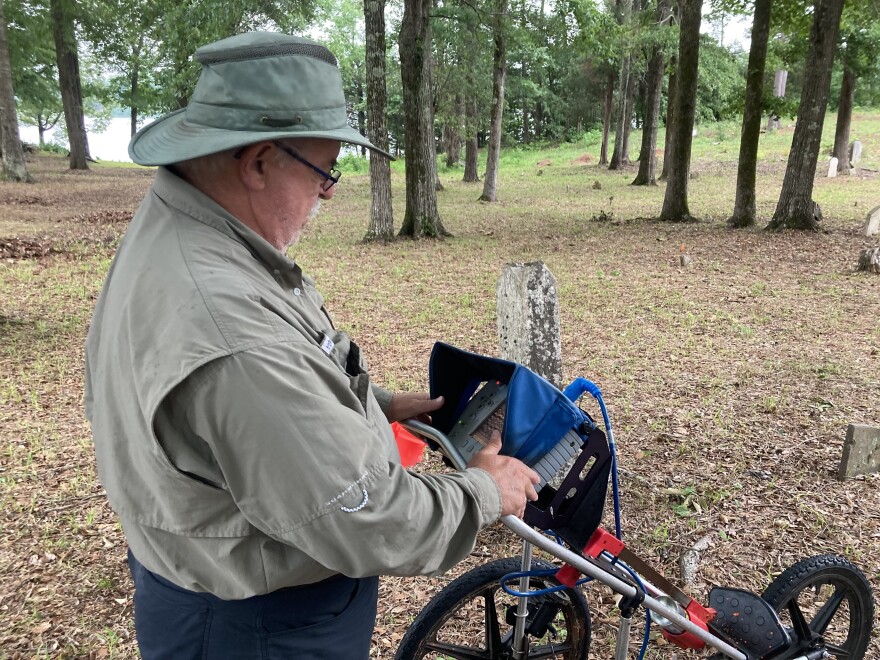The Radio Television Digital News Association recognized the Alabama Public Radio news team with a national Edward R. Murrow Award. APR won “Best Series, Small Market Radio” for its eight month investigation into preserving slave cemeteries in Alabama.
“No Stone Unturned” examined the hardships faced by African American families in the state who are descended from kidnapped Africans, once held as slaves before the Civil War. Tracing their family roots is made difficult, in part, because the U.S. Census didn’t recognize former slaves as people until 1870. Finding clues to African ancestors before that date often relies on documents like bills of sale. APR listeners heard from Alabamians like Olley Ballard of Huntsville, at the annual workshop of the Alabama Cemetery Preservation Alliance. She was looking for clues to her great Grandfather who was enslaved in 1842. A blog from the City of Huntsville admitted the municipality likely built a parking deck on his burial site. Ballard took pride in the fact that her ancestor became a successful landowner after he was freed.
“America's, and the world's, broadcast and digital journalists once again served their communities, their states, their provinces, or territories, and their nations by seeking and reporting by shining a light on problems and solutions by exposing corruption,” said Dan Shelley, President and CEO of RTDNA, of this year’s national Murrow winners. “Not because they hate governments or corporations or politicians and other public servants, or even just plain folks. But, because they want to create a more informed and educated society. And we all know that a more informed and educated society is better equipped to make sound decisions about their lives and their families.”
CBS Senior White House Correspondent Weijia Jiang took part in the webcast to announce the winners of the Murrow Awards in television, radio, and digital news as well as student honorees. She focused on these up-and-coming journalists being recognized, and what national recognition can mean to their careers.
“To me, Edward R. Murrow is synonymous with CBS News where he spent most of his career. I remember in journalism school, one of my professors told me that he (Murrow) was the “father of broadcast journalism,” and winning a Murrow award means that you are the stewards of his commitment, honesty, truth and keeping the public informed,” Jiang observed.
NBC Foreign Correspondent Richard Engel offered comments as part of the event to announce the Murrow winners. He took note of the role journalists play in a changing world of technology. First, reporters faced the arrival of the internet, then social media, and now the challenges posed by artificial intelligence and machine learning.
“And every time one of these revolutions has happened, a few things have remained consistent. Each time there was no substitute for on the ground reporting. There was no substitute for verifying sources and facts. Personally, no substitute for frontline journalism, frankly, no substitute for good journalism,” Engel asserted.
APR joins other news organizations in being recognized with national Murrows. The list includes NBC, ABC, CBS, NPR, ESPN, and CNN. Local public radio stations like New York Public Media, Texas Public Radio, WRLN in Miami, and WBUR in Boston will also take home Murrow awards.


